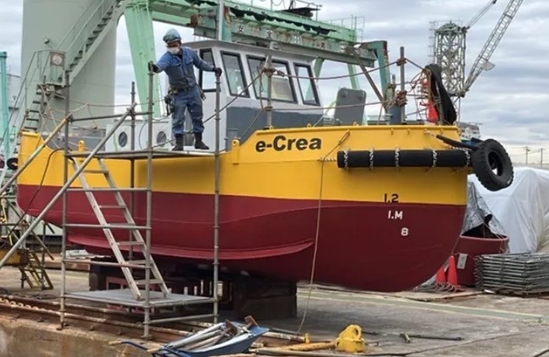
The e-Crea operates without a diesel generator, relying entirely on batteries charged at shore facilities, resulting in zero carbon dioxide emissions during operation. Its design prioritizes quiet performance, significantly reducing noise compared to traditional fossil fuel-powered ships. The vessel’s compact structure enhances maneuverability in tight spaces, making it ideal for shipyard tasks. The Japan Craft Inspection Organization (JCI) has certified the vessel.
To address challenges during construction, Keihin Dock tackled the vessel’s increased weight from large battery modules by reorganizing equipment and cabling to optimize balance and ensure safe navigation. The team also implemented safety measures to manage heat from batteries and motors, incorporating water-cooling systems, air ducts, and fireproofing in the battery room, along with enhanced ventilation to mitigate risks from hazardous gases.
NYK emphasized the vessel’s role in advancing global efforts to reduce carbon emissions in maritime transport: “Fully electric work vessels like e-Crea are a promising solution for sustainable shipping.” The company is also exploring other next-generation fuels, such as ammonia, to meet rising environmental demands. Insights from e-Crea’s operations will inform the development of a larger electric-propulsion tugboat, set for completion by December 2026.
In a related achievement, NYK completed the ammonia-fueled tug Sakigake last year, recognized as the world’s first commercial ammonia-powered vessel. It recently concluded a demonstration voyage, achieving up to 95 percent reduction in greenhouse gas emissions.